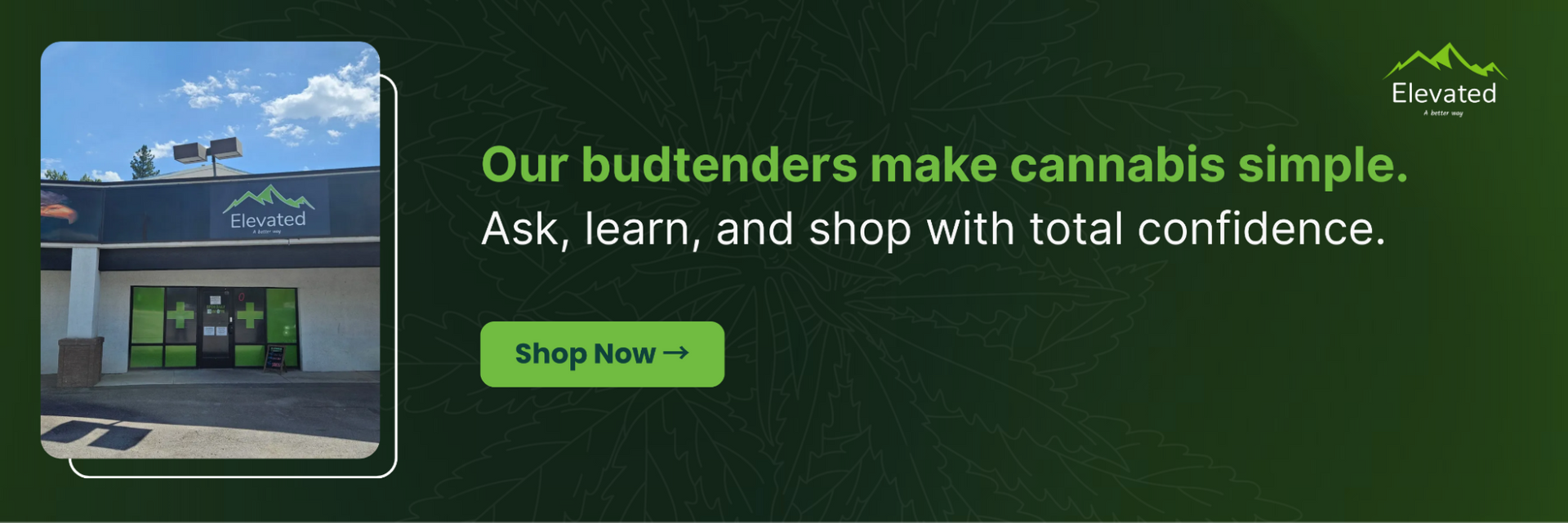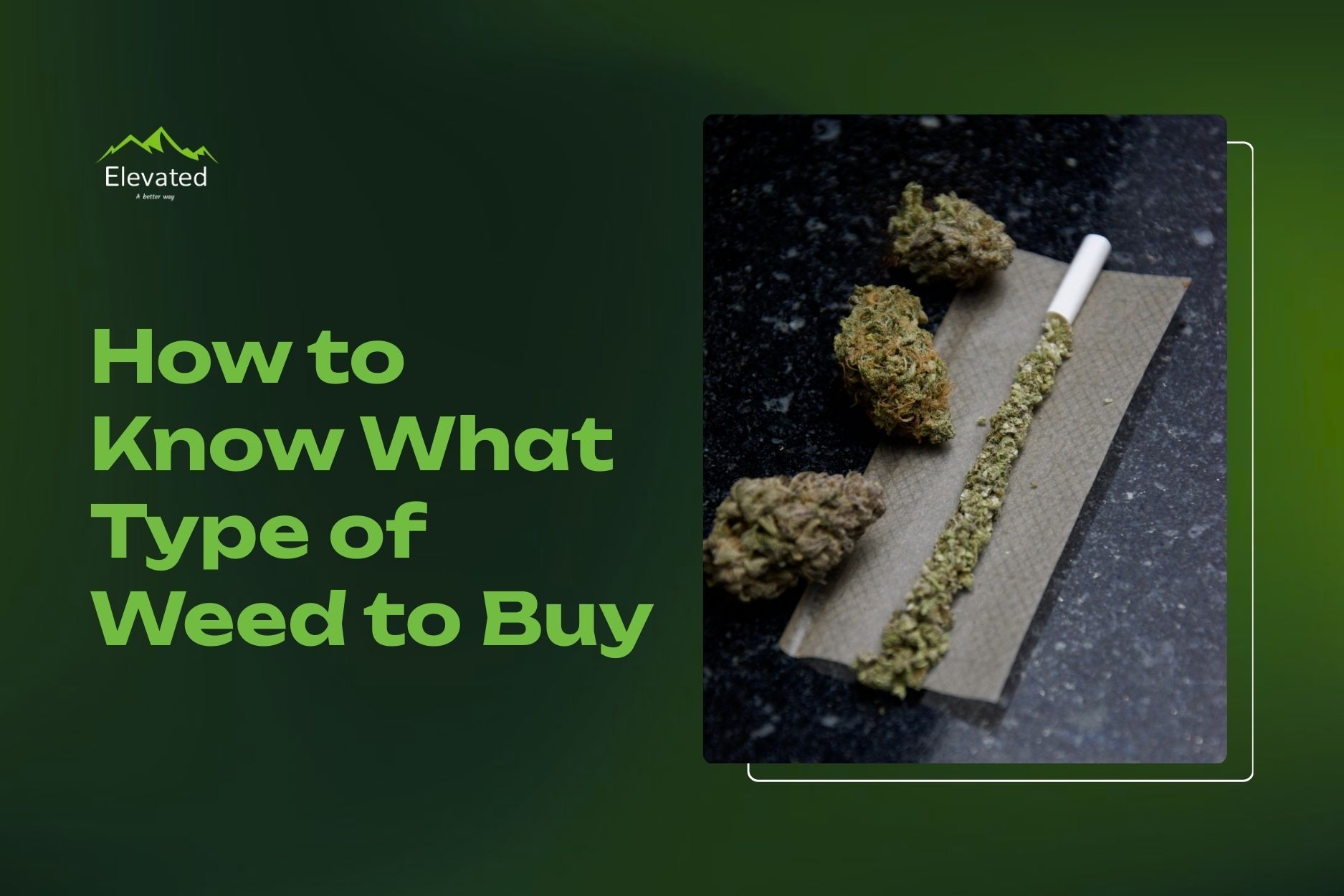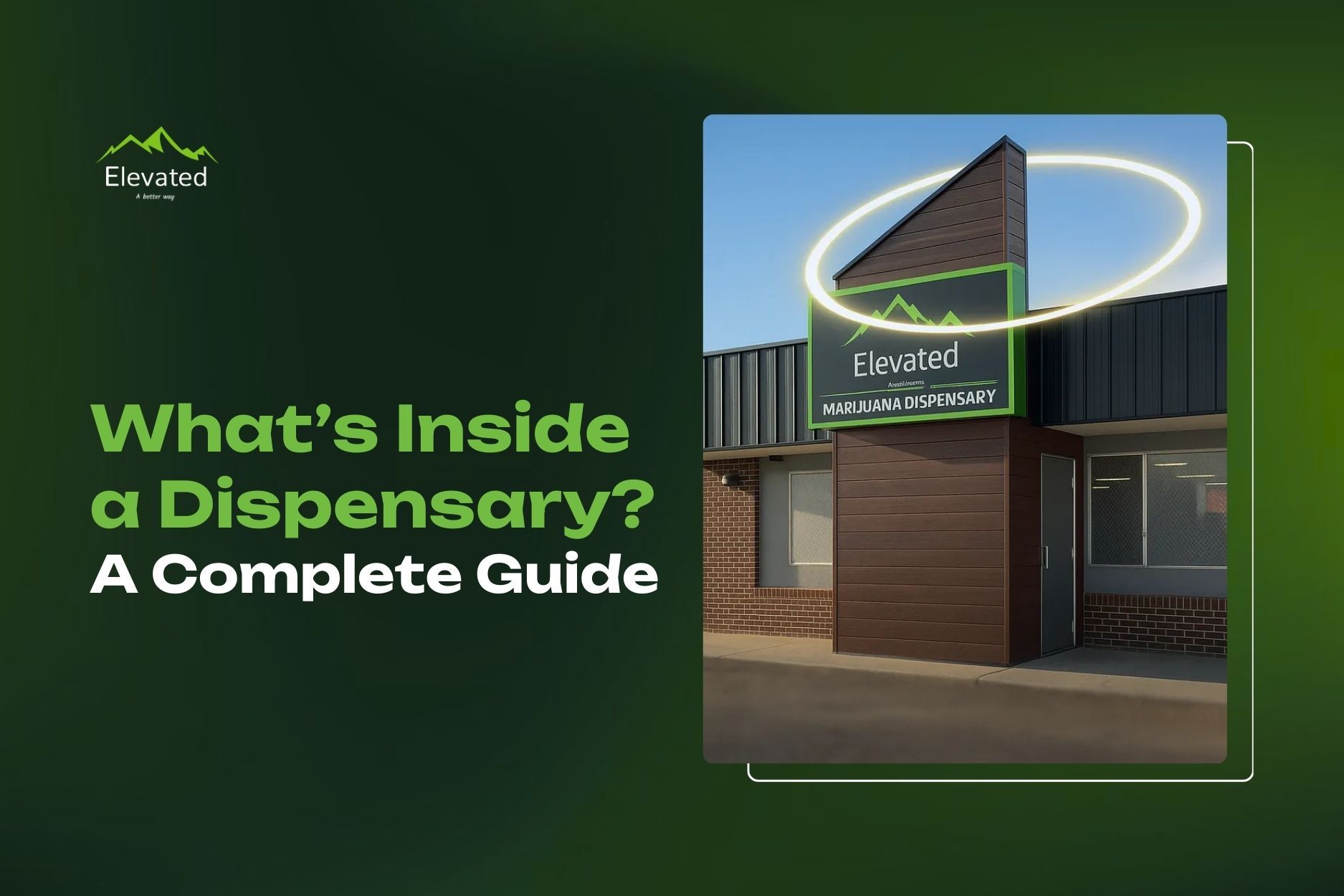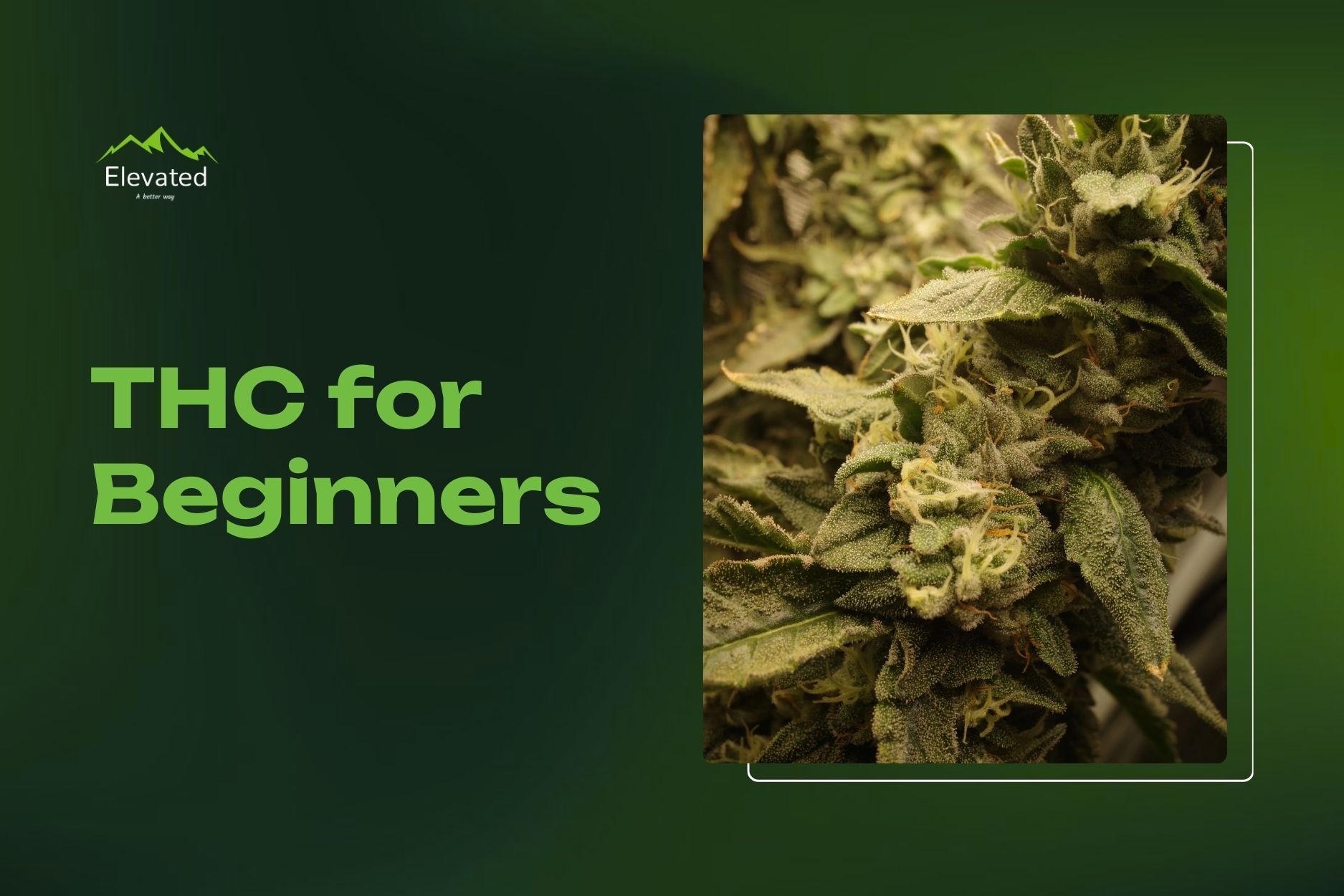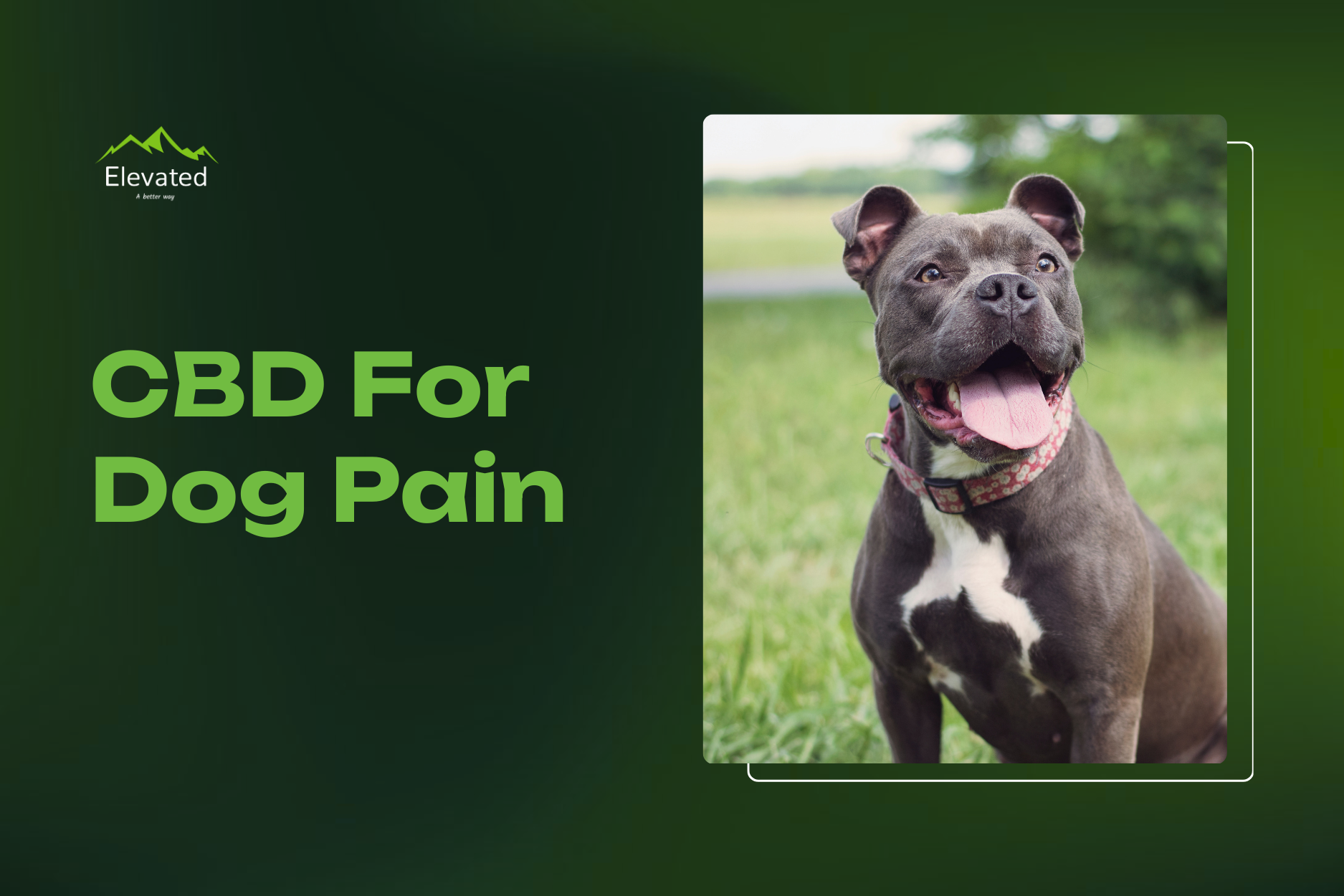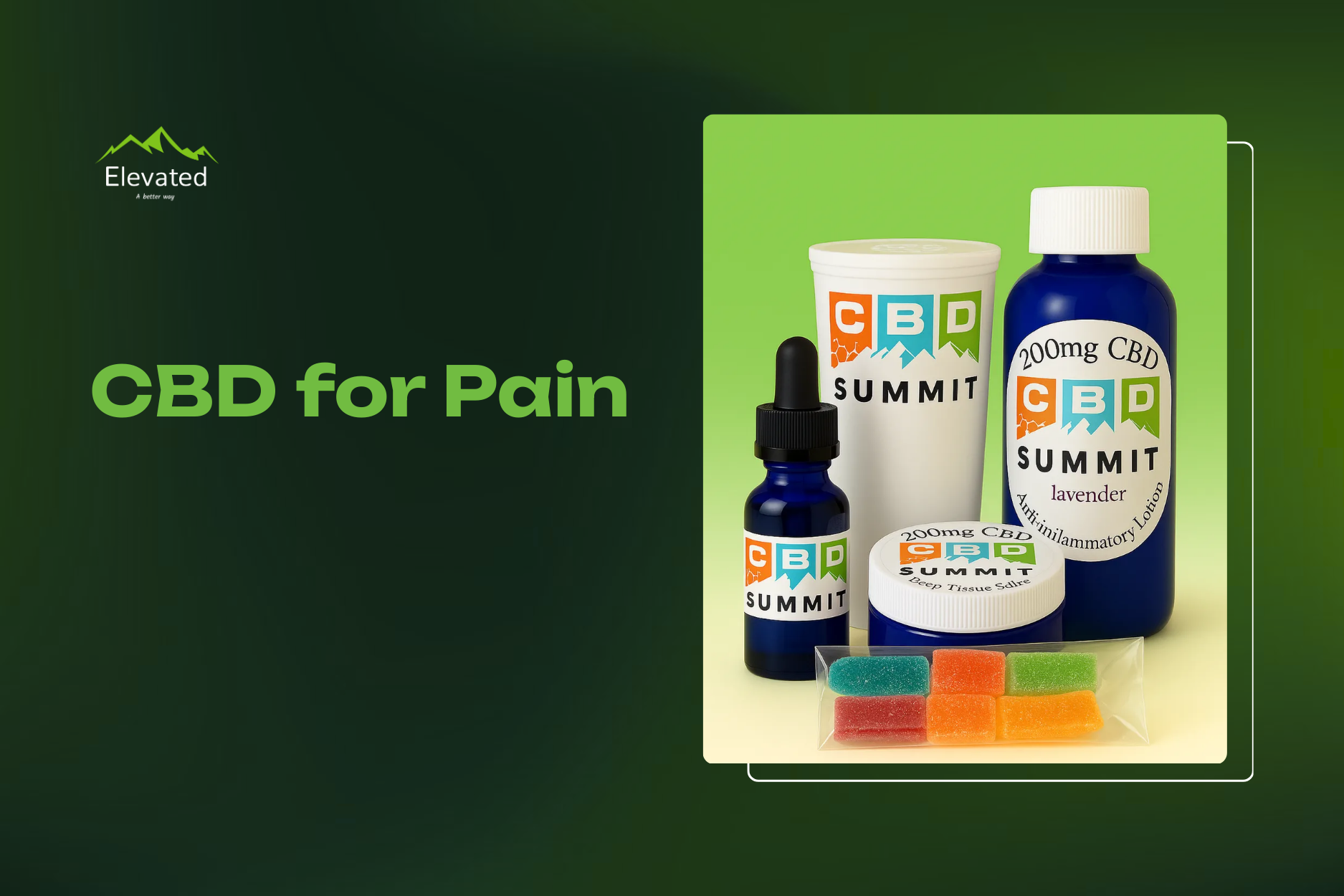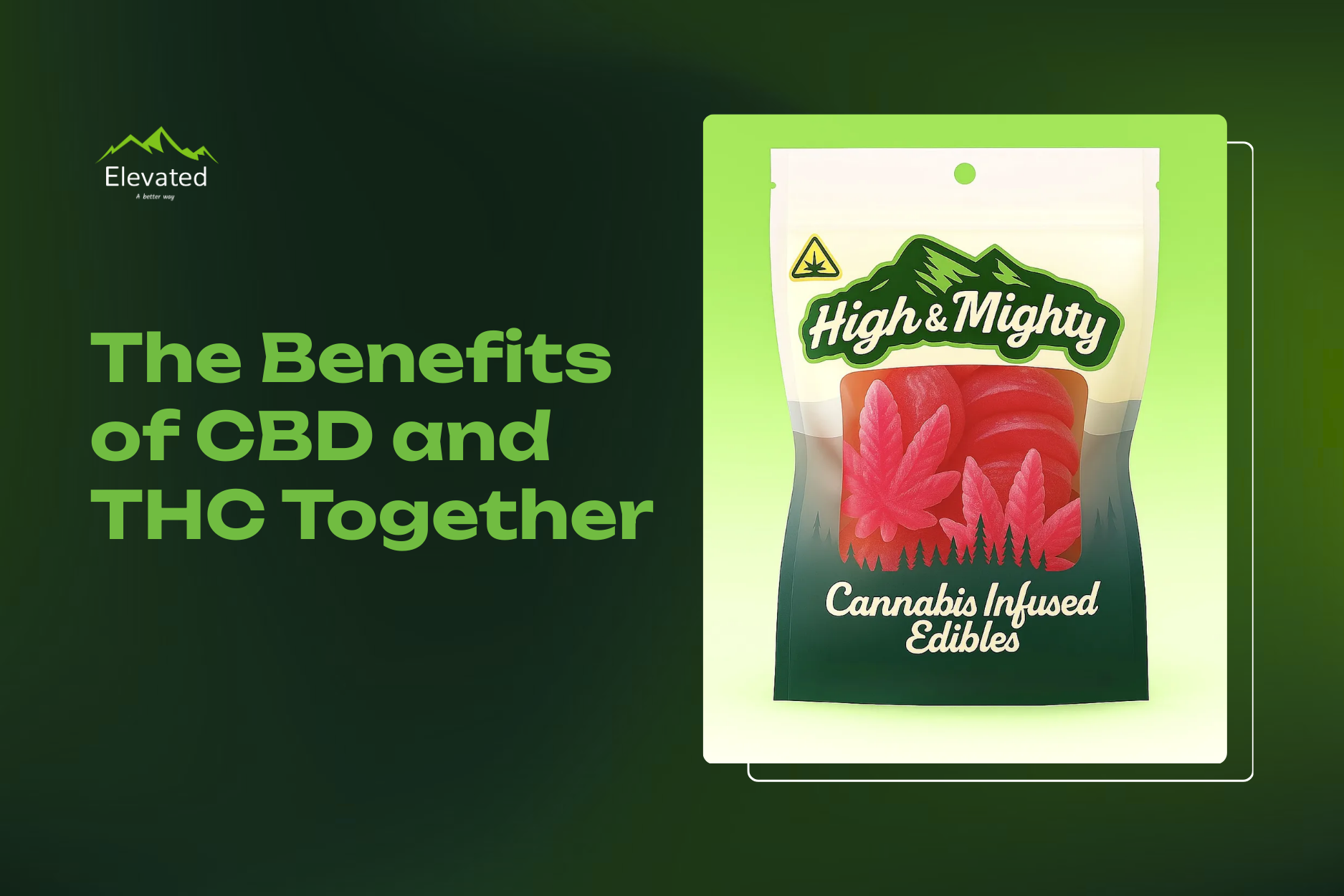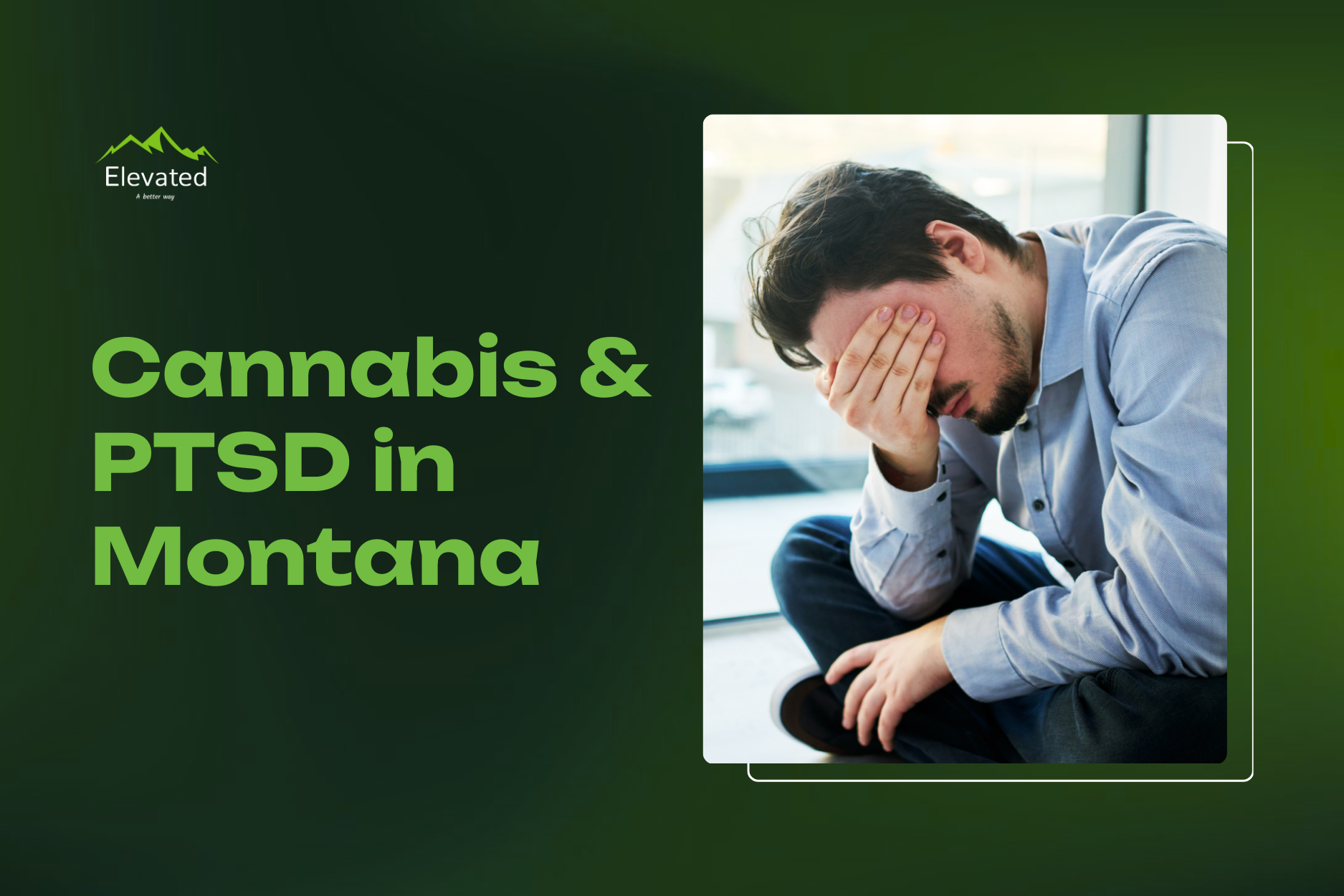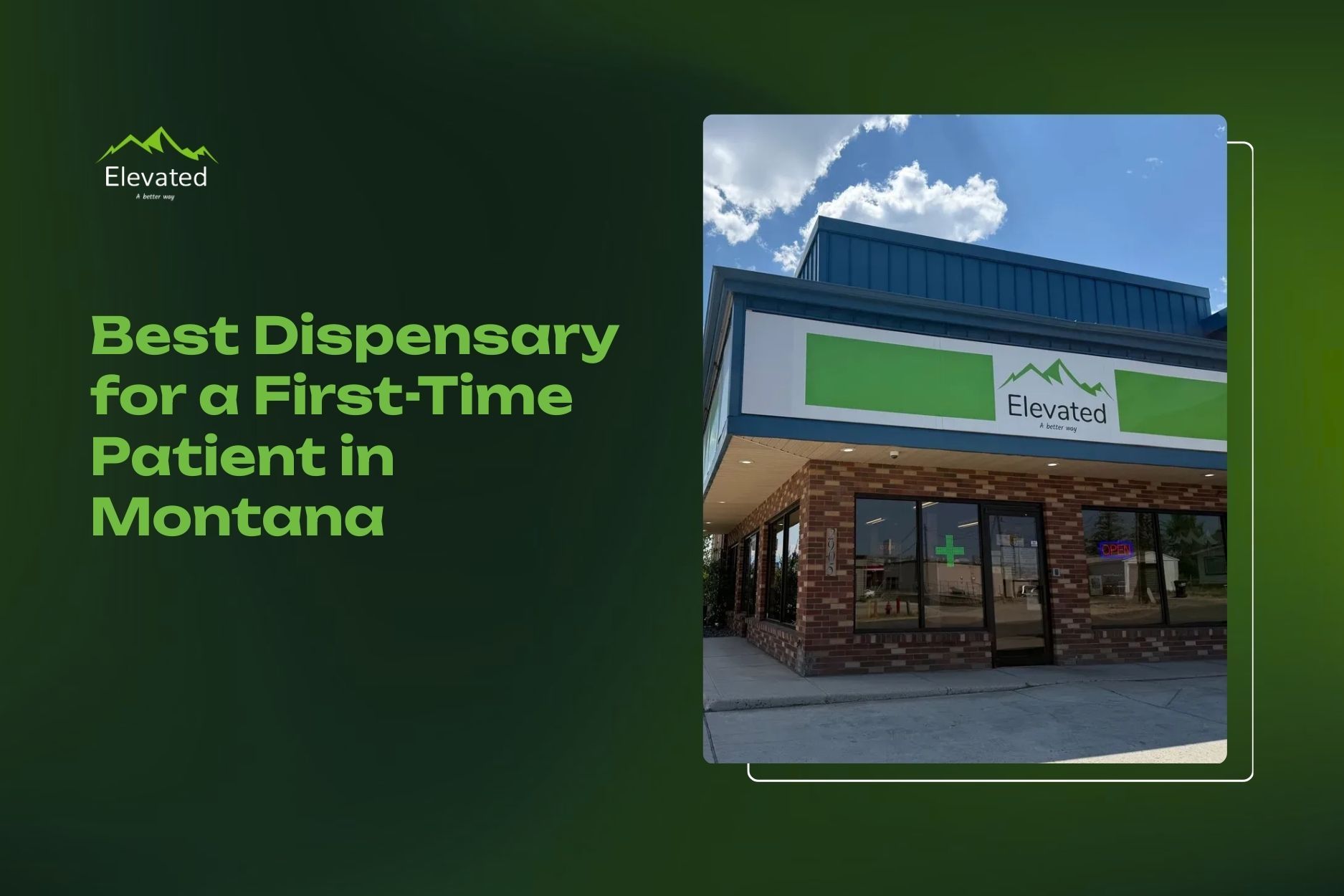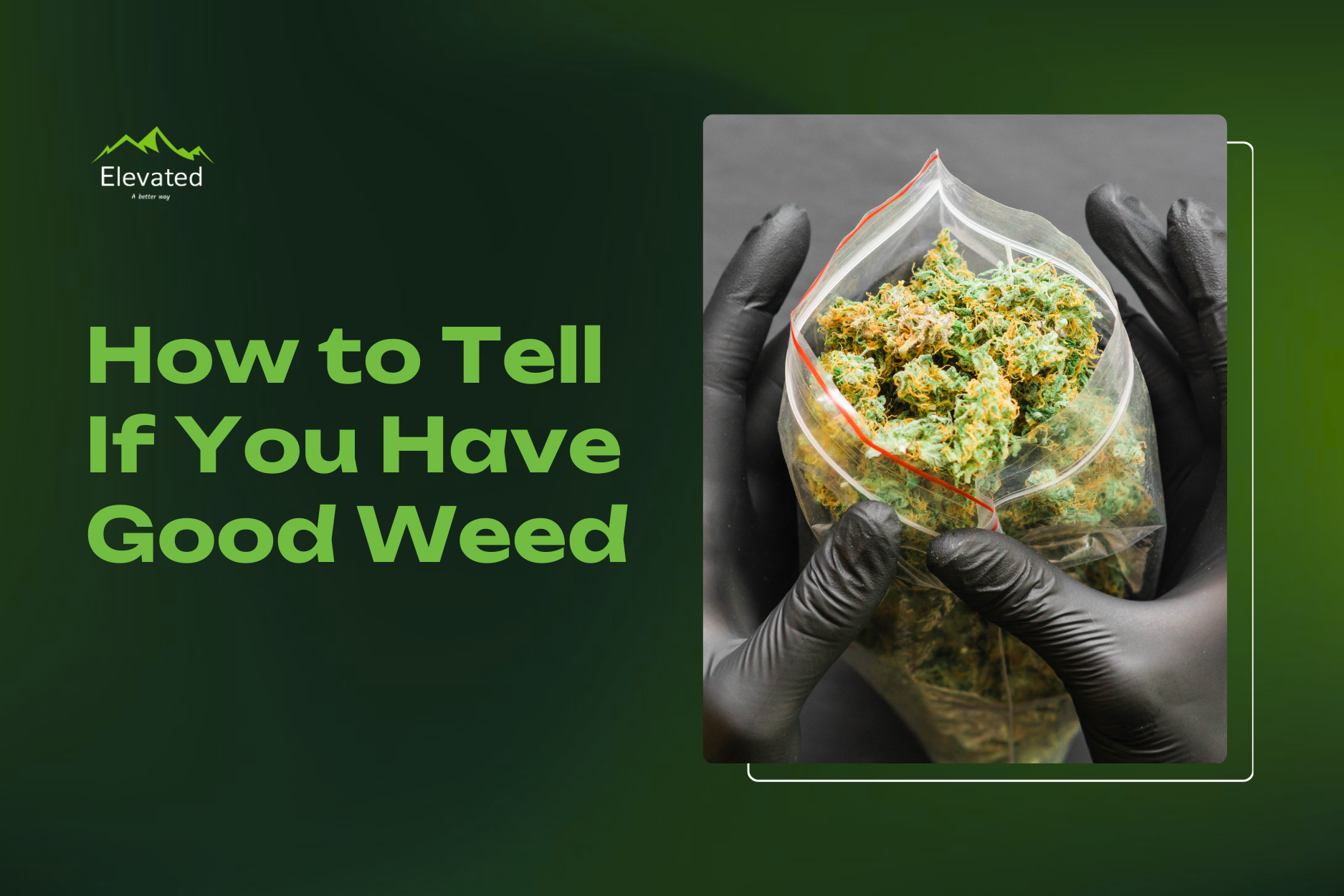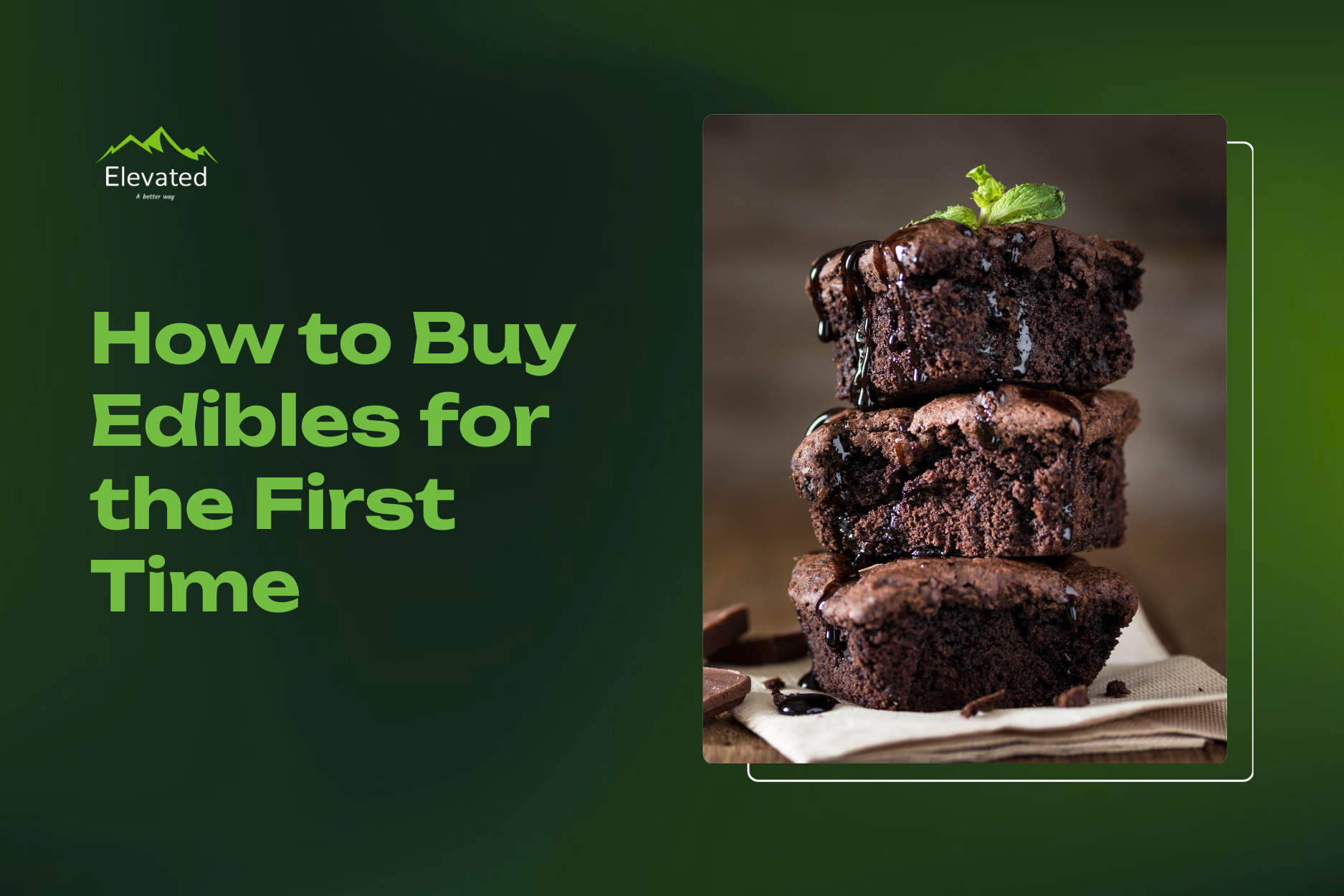Does CBD Show Up on a Drug Test? | Elevated Montana
CBD itself doesn’t trigger drug tests, but trace amounts of THC in some products can, and that trace is enough to cause a failed result. For Montanans who face routine testing, such as CDL drivers, healthcare workers, and veterans, the safest approach is to avoid CBD products altogether. Even with lab-tested or “THC-free” options, there’s no guaranteed way to eliminate every trace of THC.
Elevated’s team believes in transparency first, helping you understand the risks before you buy, so you can make informed, confident choices.
Quick Facts
- What tests detect: THC metabolites, not CBD
- Safest option: If you’re subject to drug testing, avoid CBD entirely. No product can guarantee a 100% THC-free result
- Detection windows: Urine (up to 3 wks), saliva (1–3 days), blood (hrs)
Important note: If you get drug tested for your job, we don’t recommend using any CBD products. Even trace amounts of THC can trigger a positive result, and there’s no guaranteed way to eliminate all THC traces, no matter the product type.
How Drug Tests Actually Work (and What They’re Looking For)
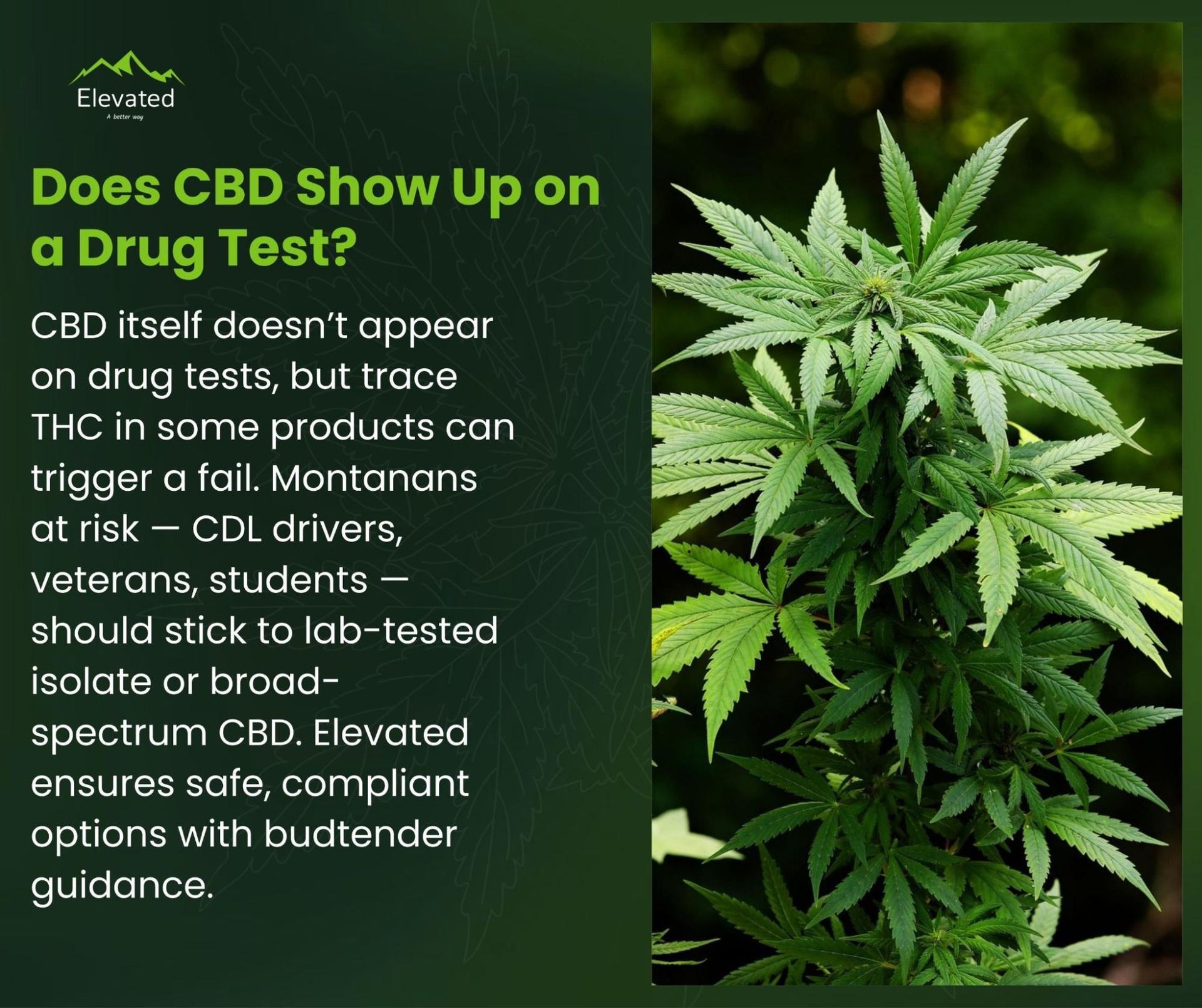
Here’s the thing most blogs skip: drug tests aren’t looking for CBD at all. They’re designed to detect THC metabolites, specifically THC-COOH, the byproduct your body creates when it processes THC.
The Types of Tests You Might Face
- Urine tests: The most common for workplaces. THC can show up here for up to 3 weeks or longer, depending on use.
- Saliva tests: Used in roadside checks; THC is usually detectable for 1–3 days.
- Blood tests: Less common, but used in accidents or investigations. THC only lingers here for a few hours.
- Hair tests: Rare in Montana, but they can detect THC for 90+ days.
Notice what’s missing? CBD. There’s no standard test for it because CBD isn’t intoxicating and isn’t a controlled substance under federal law.
Where the Confusion Comes In
The real problem comes from THC hiding in CBD products. Full-spectrum CBD can legally contain up to 0.3% THC, and depending on dosage, that tiny amount can add up. Even “THC-free” oils sold online or at gas stations have been caught with traces of THC in them.
Because there’s no guaranteed way to eliminate every trace of THC from any CBD product, anyone who may face drug testing should avoid CBD entirely. Trusting your source matters, but even the best lab-tested CBD can’t offer a 100% THC-free promise.
The Risks of CBD and Drug Testing (What Can Actually Make You Fail)
So if CBD itself isn’t the culprit, why do people still fail drug tests after using it? Three big reasons show up again and again: THC content, product type, and product quality.
Full-Spectrum vs Broad-Spectrum vs Isolate
- Full-Spectrum CBD → Contains up to 0.3% THC (federally legal). Safe for many, but frequent or high dosing can tip you over into detectable levels.
- Broad-Spectrum CBD → Has multiple cannabinoids, but ideally no THC. Safer choice, but still depends on lab testing.
- CBD Isolate → The purest form of CBD with no other cannabinoids. However, even isolates can’t guarantee a completely THC-free result, since trace contamination is always possible in production or packaging.
Dosage and Frequency
Even with small THC levels, dosage adds up. Someone taking 50mg of full-spectrum CBD twice a day for several weeks could accumulate enough THC metabolites to fail a urine test. The more frequently you use CBD, the greater the buildup risk becomes, even with low-THC or “THC-free” products.
Topicals such as salves or balms generally carry a very low risk because they don’t enter the bloodstream in detectable amounts. However, if your job depends on passing a drug test, the safest route is to avoid all CBD products entirely.
Special Risk Groups in Montana
- CDL Drivers: Random DOT tests mean zero tolerance. Even trace THC = failed test.
- Veterans & Older Adults: Many want CBD for pain or sleep, but worry about VA or clinic drug panels.
- College Students: Internships or campus jobs may still test for THC.
For all of these groups, the safest path is to avoid CBD products entirely.
How Montanans Can Use CBD Safely
Here’s the reality: while CBD can offer wellness benefits for many Montanans, anyone who faces workplace or random drug testing should avoid CBD products altogether. Even when a product is labeled “THC-free” or sold as isolate, there’s no guaranteed way to remove every trace of THC and that trace can still cause a failed test.
For everyone else, the key to using CBD wisely is knowing your product, your needs, and your risk level.
Shop Smart
Skip the “mystery oils” from gas stations or online marketplaces. In Montana, you have access to trusted, lab-tested CBD through dispensaries like Elevated, where every batch is verified for potency and purity. That’s peace of mind you won’t find on a convenience store shelf.
Pick the Right Type for Your Lifestyle
- If you’re drug tested for your job → The only truly safe option is to avoid CBD completely. Even isolates can carry trace THC risks.
- If you’re not tested and want THC-free benefits → Broad-spectrum or isolate products are the safer choices, but always review lab reports before buying.
- If you’re comfortable with THC and want the full entourage effect → Full-spectrum CBD may provide added therapeutic benefits, but remember it carries the highest risk of THC detection.
Dose with Intention
Start low (10–20mg daily) and increase gradually. Taking higher or frequent doses increases the odds that trace THC can accumulate in your system.
Elevated’s Montana Advantage
At Elevated, we take the confusion out of CBD:
- Lab-tested transparency → Every label matches what’s inside.
- Budtender education → Real Montanans ready to answer your “what if” questions.
- Community-first pricing → Veterans, tribal members, and first-time customers always get taken care of.
Because CBD shouldn’t feel like a gamble.
Clarity Over Fear
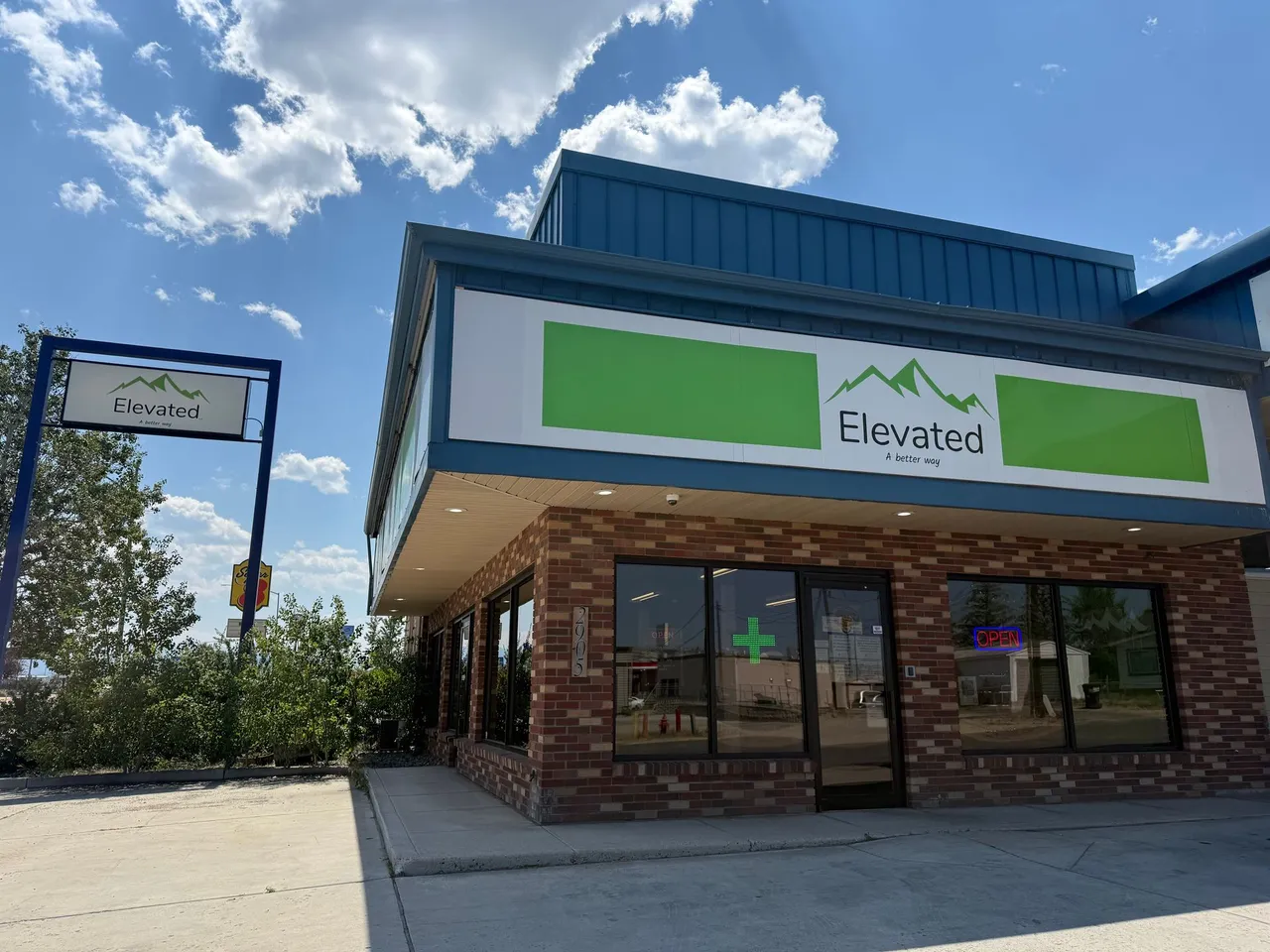
The truth is simple: CBD itself doesn’t trigger a drug test, but trace THC can, and there’s no guaranteed way to eliminate those traces completely. Even high-quality, lab-tested products can contain minute amounts of THC that may lead to a failed result.
In Montana, where livelihoods often depend on clean tests, that risk carries real consequences. If you’re subject to any form of drug testing, the safest and most responsible choice is to avoid CBD altogether.
For everyone else, the best path forward is staying informed, reading lab reports, and buying from local, regulated sources you trust.
At the end of the day, CBD should bring peace of mind, not add to your worries. Stay smart, stay safe, and most importantly, stay elevated.
FAQ
Why Do Some People Fail Drug Tests if CBD Is Legal?
The contradiction frustrates a lot of Montanans: CBD is federally legal if it contains less than 0.3% THC, yet drug tests don’t measure legality; they measure metabolites. If THC shows up, even in trace amounts, a test doesn’t care whether it came from hemp oil or a joint. That’s why sourcing matters as much as what you’re taking.
Which CBD Products Are Safest If I Get Tested?
In truth, no CBD product is completely safe for those who get tested. Full-spectrum CBD contains trace THC. Broad-spectrum and isolate options are marketed as “THC-free,” but testing errors and contamination can still occur.
If passing a drug test matters to your employment, education, or benefits, the only risk-free option is to skip CBD products entirely.
Can Employers Tell the Difference Between CBD and THC?
Unfortunately, no. Standard drug tests can’t tell whether THC came from a joint or from a mislabeled CBD oil. That means even trace THC exposure from a “THC-free” product could result in a failed test. For CDL drivers, veterans, students, and healthcare workers, avoidance is the safest route.
What About Roadside Tests in Montana?
Montana’s saliva tests don’t screen for CBD but they do detect THC. If your CBD product contains any trace amount of THC, it can still show up.
Disclaimer
This content is for informational purposes only and does not constitute medical or legal advice. Cannabis and CBD affect everyone differently. Always consult a healthcare provider before starting CBD, especially if you face drug testing for employment. Adults 21+ only.
References
- Mayo Clinic. (2017). Labeling accuracy of cannabidiol extracts sold online. JAMA, 318(17), 1708–1709. https://doi.org/10.1001/jama.2017.11909
- National Academies of Sciences, Engineering, and Medicine. (2017). The health effects of cannabis and cannabinoids: The current state of evidence and recommendations for research. Washington, DC: The National Academies Press.
- U.S. Department of Transportation. (2020). DOT “CBD” notice. Federal Motor Carrier Safety Administration. Retrieved from https://www.fmcsa.dot.gov
- Leafly. (n.d.). Does CBD show up on a drug test? Retrieved from https://www.leafly.com
